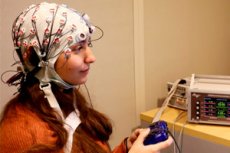New publications
Electrical stimulation can help improve memory
Last reviewed: 29.06.2025

All iLive content is medically reviewed or fact checked to ensure as much factual accuracy as possible.
We have strict sourcing guidelines and only link to reputable media sites, academic research institutions and, whenever possible, medically peer reviewed studies. Note that the numbers in parentheses ([1], [2], etc.) are clickable links to these studies.
If you feel that any of our content is inaccurate, out-of-date, or otherwise questionable, please select it and press Ctrl + Enter.

Specific procedures of cortical electrical stimulation can significantly improve the functionality of certain brain areas. This conclusion was made by Boston University specialists after conducting a study involving voluntary elderly participants.
The average age of the volunteers was 75 years. They were tasked with learning two dozen words, repeating them regularly at regular intervals. Some participants were additionally given transcranial alternating current stimulation using fixation of electrodes in the head area. A weak electric current was passed through the skin and bone tissue of the cranium, and the effects captured two areas of the cerebral cortex. Each zone was exposed to current of different frequency.
Scientists explain the essence of the experiment as follows. Each of the cortical zones has its own frequency of neurons. Over the years, such frequencies decrease, which can negatively affect the quality of memory. The researchers set themselves the goal of forcing nerve cells to restore the lost frequency.
In the end, the goal was achieved. In the participants who were subjected to stimulation, memory was improved by an average of 60%. At the same time, the effect of improvement was long-lasting - at least one month.
Electrotimulation covered the prefrontal and inferior parietal area of the cerebral cortex. When acting on the parietal area, the so-called working memory was optimized - that is, the process of current memory activity. In the "cells" of such memory information settles down, but not for long, as it is replaced by new data. The improvement of this working process after stimulation consisted in the fact that volunteers better remembered words from the final part of the proposed vocabulary series.
But stimulation of the prefrontal zone optimized long-term memory: participants better remembered the words at the beginning of the list.
In addition, the researchers also eliminated the "pacifier" effect by simulating the electrostimulation procedure in some subjects. The memory of such participants remained at the same level.
Such experiments are not unique, but at the end of this work, experts unequivocally stated that electrostimulation does have a clear optimizing effect.
Some nuances of the study should also be noted. None of the participants were diagnosed with senile dementia, but only with "age-related forgetfulness". Most likely, in the near future work will be done to evaluate the effectiveness of electrostimulation in relation to patients with alzheimer's disease.
Scientists have already called the results of the experiment excellent and promising. The brain current procedure itself proved to be not only effective, but also relatively inexpensive.
The full specifics and outcomes of the scientific work can be found at the Nature neuroscience webpage
